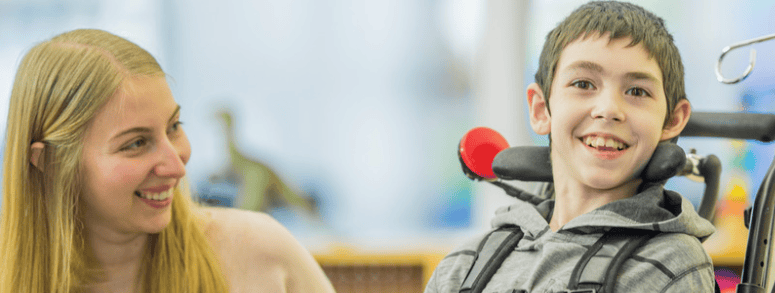
Mental Health, Learning Disabilities and Autism Collaborative Programme
We want people of all ages who experience mental health problems, have learning disabilities and/or Autism to live healthy lives, be able to achieve their goals and be accepted and supported in the communities they live in.

Our Priorities
We aim to improve services for people who experience poor mental health. We are working towards ensuring that mental health problems are given the same prominence as physical health problems in the planning and delivery of local health and care services. In keeping with our broader aims and ambitions, we want to put in place programmes and systems that will help people to stay well and manage their conditions confidently.
We will improve the care and support available in the community and work to reduce the length of time people stay in hospital. We will work with local councils and the voluntary sector to improve housing and job opportunities for people experiencing mental ill-health. We will create new services to avoid unnecessary hospital stays, such as the introduction of crisis pads, which provide a calm, safe, environment for people experiencing crisis or distress.
Our Plan
For many years now, health and care organisations working in our region to deliver Mental Health, Learning Disabilities and Autism services have been working increasingly closer together, through the development of our partnership arrangement and our collaborative programme or work.
Our partnership aims to join up services to better support our patients and make the best use of the resources at our disposal. This approach has developed to the point that we now plan collaboratively across our six local places to ensure that Mental Health, Learning Disabilities and Autism services are meeting the needs of our populations, are available to all who need them and that investment decisions are aligned to longer term strategic goals, supported by evidence based needs.
This presents us with an opportunity to be authentic change makers with a system driver of reducing Mental Health Inequalities and ensuring parity of esteem. Reduction in Health Inequalities must fundamentally underpin and inform prioritisation, objectives and purpose within the mental health, learning disabilities and autism partnership.
To read more our vision, strategic outcomes and some of the key pieces of work that will support their delivery please read: Developing our Strategy for the future – a statement of intent July 2021.
To read about our achievements during 2023-2024, please read our annual report here.
To read about our achievements during 2022-2023, please read our annual report here.
To read about our achievements during 2021-2022, please read our annual report here.


Our Work
We have key priority workstreams that will help us to deliver our vision and outcomes over the years to come. These priorities may flex over time as we begin to realise our ambitions and meet the potentially changing needs of our populations.
Our priority workstreams include:
• Learning Disabilities and neurodiversity
• Autism
• Children and Young People’s Mental Health
• Community Mental Health – including Severe Mental Illness (SMI) Physical Health Checks
• Suicide Prevention – Suicide Prevention Programme Progress Report 2019-2021
• Staff Mental Health Resilience Support
• Improving Access to Psychological Therapies (IAPT)
• Perinatal and Maternal Mental Health
• Dementia
• Urgent and Emergency Care
• Individual Placement Support
• Children and Young People’s Trauma Informed Care Programme
Plans and Strategies
The Mental Health Learning Disabilities and Autism Collaborative Programme Strategy
Humber, Coast and Vale Health and Care Partnership Long-Term Plan 2019 – 2024
The NHS Mental Health Implementation Plan 2019/20 – 2023/24
The National Strategy for Autistic Children, Young People and Adults: 2021 – 2016


Talking Therapies
Also, hospital staff and care home staff, who are experiencing a common mental health problem related to Covid-19, also have priority access to local talking therapies services in their area. Details of local Talking Therapy services can be found below.
You can find out more about local Talking Therapies services via the websites below or by speaking to your GP for a referral.
York and Selby IAPT or 01904 556820
North Yorkshire IAPT
Let’s Talk Hull – 01482 247111
East Riding Emotional Wellbeing Service – http://humberews.co.uk/,
self-refer at iaptportal.co.uk/erew.html or 01482 335451
North Lincolnshire IAPT or 01724 867297
North East Lincolnshire 24/7 dedicated support line – 01472 256256
